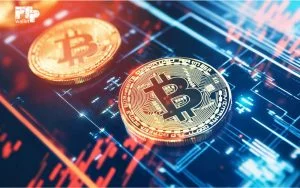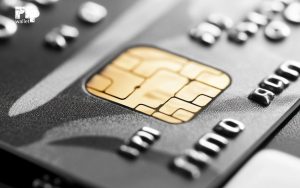The massive adoption of non-fungible tokens (NFTs) into the blockchain society is a novel means for creators to reward their creativity. However, there is a looming problem resulting from the conflict of ownership and NFT copyright. Without a solution to this, NFTs won’t reach their full potentials.
NFT Explosion in 2021
The first six months of 2021 witnessed bizarre publicity about non-fungible tokens (NFTs). It became a wild conversation across the digital space where individuals discussed the adoption of non-fungible tokens and how they can become the future of art. It’s become a hot conversation among creators and how it will be a reward system without an auction body.
The public experienced the sales of the first NFT-tweet from Twitter CEO Jack. Another is the famous Beeple’s “Everydays” NFT sales with about $69 million sales. Despite discussing the future NFT’s promise for original creators, one major topic spurred from the whole conversation.
It is the conversation about NFT copyright. Copyright is exercised throughout the NFT transaction process, but no inherent property to establish that the copyright laws are respected.
Blockchain development in cryptocurrency came with advocacy against the centralized and regulated system. Maximizing cryptocurrency went with the tip of allowing every individual to become a user without restrictions on age, gender, race, or any societal cadre. NFTs became a novel idea out this sphere.
NFTs came with the potency of allowing the individual creator to sell his items without established institutions in his industry. That is, an artist can sell his artwork without taking it to an auction or exhibition house.
As a result of this, a considerable problem sprung about the copyright of an NFT. This takes a toll on the purchases of NFTs between the artists and purchasers.
How Copyright Problems Occur?
The first problem you will encounter as an NFT purchaser is the problem of ownership. There is a serious question to answer. Does your ownership indicate that you have a property right for the item? You do not. This means that as an owner, you do not have the exclusive rights the copyright owner has.
An instance is when you buy artwork. You do not have the exclusive rights to make copies of such items except you buy the copyright with it. Your purchase of NFT doesn’t guarantee that you own the digital file.
The only thing you have access to is the link to the server location of the file. The minter saves a copy of the digital format of the item on a server and creates blockchain tokens for his items. The tokens contain links to the files on the hosting server. However, NFTs will redirect you to dead links provided the hosting service reversed their hosting.
Another copyright problem associated with NFTs is minting NFTs. NFT buyers believe that their purchase is a standard for authenticity. But you can mint a digital file as NFT if you have permission. The minting process involves saving a digital copy of the file on the server.
The copyright owner has the absolute authority to make copies of the digital item. However, an individual can mint on the copyright owner’s behalf provided he has the permission to access the server. Otherwise, marketing and selling such NFTs is a copyright infringement. Meanwhile, misunderstanding about copyright can result in unauthorized minting of NFTs.
This unauthorized minting of NFTs has led to decreasing confidence in the value of NFTs. Buyers are skeptical about getting one, and the marketplace is suffering from people selling fake NFTs to the public. There will be a need for the NFT marketplace to find common ground with copyright before buyers start exchanging their money for the original value of creativity.
What Are the Possible Solutions to NFT Copyright Problems?
The first solution to NFT and copyright problems is bringing copyright knowledge to the NFT developmental phase. As a result, individuals respect and leverage copyright policy. Another solution is to partner with auctions that sell limited NFTs. They assess the NFTs and verify their copyright. The assessment and verification of NFTs play a vital role in restoring NFT creative value for the long-term run.
NFTs Interaction With Copyright Policy
The continuous adoption of NFTs and the constant creation of new one in the marketplace make it nearly impossible to impose legal consequences. However, they are still perceived as unique items because of their associated unique codes.
Although the implications of copyright law are yet to be fully addressed, there is copyright law involved in the technical process of minting and distributing NFTs while making sales. As a result, this becomes a problem not only for the creators but for consumers too.
As a response to this problem, new firms are created to address these copyright law problems. These firms are involving copyright expertise in developing and selling NFTs. This will enable the entire establishment of NFT potential.



